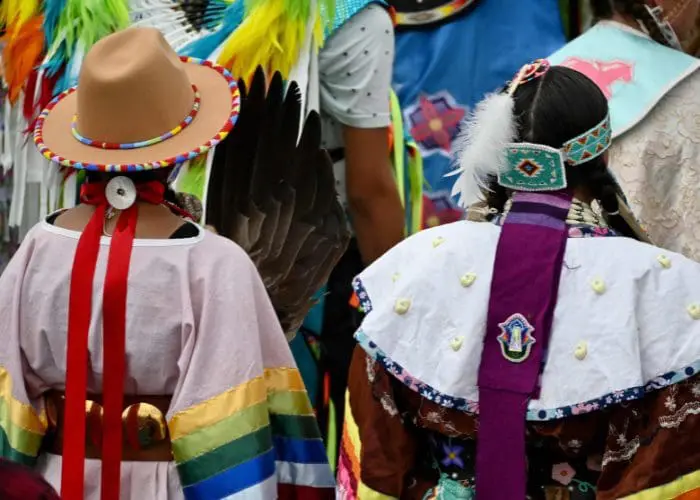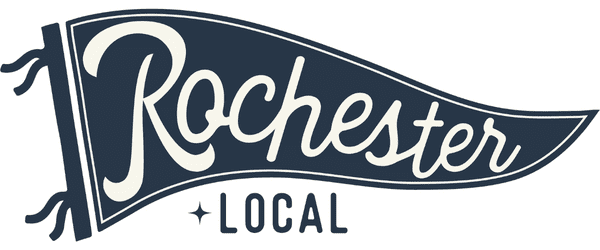
November is Native American Heritage Month, also referred to as American Indian and Alaska Native Heritage Month. It is “a time to celebrate rich and diverse cultures, traditions, and histories and to acknowledge the important contributions of Native people” (NCIA.org). It is also important to learn about the challenges that impact Indigenous people specifically, both historically and today (NCIA.org). In this post, we are focusing on the original inhabitants of the land we now call Minnesota. This collection is not comprehensive; instead, it is meant to be a starting point to learn more about the Native Americans in the area where we now live, from the past through the present.
Where are you?
A Guide to Indigenous Land Acknowledgment
This guide was created by the Native Governance Center, a Native-led non-profit organization that serves Native nations Mni Sota Makoce, North Dakota, and South Dakota focusing on rebuilding nations through leadership development and Tribal governance support programs. (nativegov.org)
Native Land
Use this helpful tool to identify which native lands you were born, raised, and continue to live on. This website was created and maintained by an Indigenous-led, Canadian non-profit organization to help start conversations “about the history of colonialism, Indigenous ways of knowing, and settler-Indigenous relations.” (native-land.ca)
Mni Sota Makoce (Minnesota)
A Dakota phrase meaning “Land Where the Waters Reflect the Clouds–and the people’s roots remain strong” (Westerman & White, 2012).
Rochester, Minnesota
Rochester is established on the native land belonging to the Wahpeton tribe who were a part of the alliance called Oceti Ŝakowiŋ — The Seven Council Fires. Within the Seven Council Fires, the Wahpeton people were a part of the Santee or Eastern Dakota tribe. (mnhs.org). Anishinaabe and other Indigenous people also live in this area (nativegov.org).
History
Oceti Ŝakowiŋ, The Seven Council Fires
Virtually view and learn about Oceti Ŝakowiŋ, The Seven Council Fires, and artifacts here: Minnesota Historical Society
The US-Dakota War of 1862
Dedicate some time to visit The US-Dakota War of 1862 virtual exhibit by the Minnesota Historical Society here: usdakotawar.org.
Boarding Schools
Read about the history of boarding schools “used as a tool of ethnic cleansing” in Minnesota and across the US, here: National Native American Boarding School Healing Coalition.
Indigenous Lives Today
Arts & Culture
Mnisota Native Artists Alliance
Supporting, highlighting, and cultivating the work of Mnisota’s native artists.
Niibidoon
An Anishinaabe artist located in White Earth, MN creates Birchbark and Black Ash jewelry.
Native Roots Radio Network
A Native American radio talk show based in the Twin Cities focusing on “Mother Earth, Tribal and Twin Cities issues.”
Birchbark Books & Native Arts
Owned by author Louise Erdrich, an enrolled member of the Turtle Band of the Chippewa, a federally recognized tribe of Ojibwe people, Birchbark Books is a full-range bookstore specializing in Indigenous American books, arts & gifts.
Food & Drink
Owamni by The Sioux Chef
420 1st Street South, Minneapolis, MN 55401
A full service, modern, indigenous restaurant on the shores of Hahawakpa (Mississippi).
Pow Wow Grounds
1414 E Franklin Ave, Minneapolis, MN 55404
Native Owned Coffee Shop in Minneapolis.
Gatherings Cafe
1530 E Franklin Ave, Minneapolis, MN 55404
An Urban, Native American community cafe that serves fresh, locally grown foods that are indigenous and prepared in healthy ways.
Organizations to Support
Minnesota Indigenous Business Alliance
Promotes and supports Native entrepreneurship in every form (mniba.org).
Mni Sota Fund
An urban Native Community Development Financial Institutions Fund (CDFI) of the Twin Cities focused on “building wealth in the Native community”. Their mission is “to provide training and access to capital in order to promote home ownership, entrepreneurship, and financial capabilities among American Indian men and women throughout the state of Minnesota” (mnisotafund.org).
Division of Indian Work
The DIW’s “mission is to support and strengthen urban American Indian people through culturally-based education, traditional healing approaches, and leadership development” (diw-mn.org).
Bdote Learning Center
A K-8 Dakota and Ojibwe immersion and public charter school that provides students with “an academically rigorous education that is place-based, and rooted in Native language and culture of indigenous peoples” (bdote.org)
Native American Community Development Institute (NACDI)
NACDI initiates projects that benefit the Native community through partnerships to help Native people create the future they envision (nacdi.org).
North American Traditional Indigenous Food Systems (NATIFS)
An indigenous non-profit focused on Indigenous education and food access (NATIFS.org).
This is not a comprehensive list, but rather just a place to get started. What else would you add?
this post was originally published in 2021

